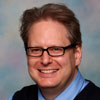Chrystal Quisenberry receives Hariet B. Regas Award
sue@susanweaver.net
 The Association for Faculty Women announced its 2015-2016 award winners for outstanding women in graduate studies. These awards recognize superlative academic and scholarly accomplishments, as well as professional potential of women graduate students at WSU completing their degrees in the 2015-2016 academic year. Voiland School graduate student Chrystal Quisenberry was one of the recipients.
The Association for Faculty Women announced its 2015-2016 award winners for outstanding women in graduate studies. These awards recognize superlative academic and scholarly accomplishments, as well as professional potential of women graduate students at WSU completing their degrees in the 2015-2016 academic year. Voiland School graduate student Chrystal Quisenberry was one of the recipients.
Dissertation: “Nanomechanics in Cartilage Tissue Engineering”
Chair: Dr. Nehal I. Abu-Lail Schol of Chemical Engineering and Bioengineering
Familiar with and impressed by her achievements as an undergraduate both as a leader and a researcher, Dr. Abu-Lail recruited Chrystal for her lab. She summarizes her research saying, “Although more than 27 million people in the U.S. suffer from the joint disease osteoarthritis, current treatments do not restore the full functions of the tissue. Because articular cartilage is avascular, meaning it lacks blood vessels, it has a limited capacity for self-repair. This has prompted researchers to focus on cartilage tissue engineering. As cartilage acts as a load bearing surface, one of the challenges in tissue engineering is creating a construct with mechanical properties near that of native cartilage. We, along with our collaborators, use a bioreactor to apply loads to the growing tissue with one of our intentions being to improve the tissue’s mechanical properties which is then measured using an atomic force microscope.”
Chrystal has received thirteen scholarship and awards including a NASA Space grant and an NIH grant. She has worked as a TA in four classes and mentors five students as a Future Cougar of Color Ambassador. She has published four journal articles in peer-reviewed journals and presented at twenty-four conferences.
➡ View the story at the Association for Faculty Women’s website.





